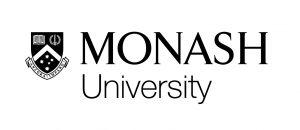
Posted: 24 February 2025
An AI-driven revolutionary approach in fetal brain health monitoring will enable early detection of fetal distress, allowing for timely interventions to prevent brain damage and reducing unnecessary medical interventions, thanks to Monash Institute of Medical Engineering (MIME) project grant support.
Inadequate oxygen supply to the baby during pregnancy and childbirth, is a major cause of perinatal brain injury, stillbirth, and lifelong conditions like cerebral palsy. Each year, millions of babies worldwide suffer from these complications, leading to significant medical, emotional, and financial burdens on families and healthcare systems.
Current fetal monitoring technologies, such as cardiotocography (CTG), are often inaccurate at detecting fetal distress. This results in either delayed interventions, increasing the risk of brain injury, or unnecessary C-sections, contributing to surgical risks and increased healthcare costs.
This project aims to fill this gap by developing new AI-powered software that non-invasively monitors fetal physiological signals to detect signatures corresponding to hypoxia for early detection. This is set to improve clinical decision-making, prevent perinatal brain injury, and ultimately save lives.
Lead researchers, Dr Faezeh Marzbanrad, a Senior Lecturer and Head of Biomedical Signal Processing lab with an interest in fetal, maternal and neonatal healthcare technologies from the Faculty of Engineering at Monash University; Dr Robert Galinsky, Head of the Perinatal and Inflammation and Neurophysiology Group at Monash University and Dr Vinayak Smith, a Clinical Research Fellow from the Department of Obstetrics and Gynaecology at Monash University and Hudson Institute of Medical Research believe that this research has the potential to revolutionise obstetric care and enhance maternal and neonatal health outcomes globally.
“This innovative approach provides real-time, precise insights into fetal health, providing impact in four key areas:
- Improved detection of fetal distress: Current monitoring methods like cardiotocography have limited accuracy, contributing to unnecessary C-sections (up to 70,000 annually in Australia) and missed cases of fetal hypoxia, increasing the risk of brain injury. The AI-driven fetal monitoring system aims to reduce false positives and false negatives, leading to timelier interventions and fewer preventable brain injuries.
- Reduction in cerebral palsy and neonatal complications: Hypoxia during birth is a leading cause of cerebral palsy (affecting 1 in 700 newborns in Australia) and other lifelong neurological conditions. Early and accurate detection could help prevent thousands of cases worldwide, reducing the long-term burdens on affected individuals and their families, healthcare, welfare and educational systems.
- Lower healthcare costs: Preventing unnecessary C-sections and neonatal complications could save millions of dollars annually in surgical costs, neonatal intensive care, and lifelong disability management.
- Global health impact: With 140 million births per year globally, our technology has the potential to benefit millions of mothers and babies.
This research will help meet an urgent unmet need impacting millions of Australians,” said Drs Marzbanrad, Galinsky and Smith.
This project was one of six awarded Monash Institute of Medial Engineering (MIME) Invent Research Support grant support in late 2024.
“Thanks to the support from MIME, we are able to take the next critical steps to further develop and validate our technology, along with facilitating collaborations with clinical and industry partners. Ultimately, this support brings us one step closer to revolutionising fetal monitoring through improving pregnancy outcomes and reducing the risk of perinatal brain injuries,” said Drs Marzbanrad, Galinsky and Smith.
Watch this space for further developments.
Acknowledgements
The project team would like to acknowledge the collaborations with leading experts and institutions that have been instrumental in advancing this research.
- Professor Gari Clifford (Emory University, Georgia Tech, and CTO of Mindchild Medical) – A pioneer in fetal monitoring technologies, and expert in biomedical signal processing and AI.
- Professor David Walker (Hudson Institute – The Ritchie Centre) an expert physiologist with a long interest in fetal and neonatal development.
- Associate Professor Mehrtash Harandi (Monash University) – An expert in machine learning and AI.
- Associate Professor Kirsten Palmer (Monash University and Monash Health) – Head of Maternal Fetal Medicine at Monash Medical Centre and Deputy Head of the Department of Obstetrics and Gynaecology at Monash University. Associate Professor Palmer provides care for some of the most complex pregnancies in Victoria.
- Professor Rod Hunt (Monash University and Monash Health) – Financial Markets for Children Chair in Neonatal Pediatrics and Director of Research, Cerebral Palsy Alliance, Victoria. Professor Hunt is an international expert in the fields of neonatal neurology and neurodevelopment.
For more information on MIME Invent Research Support grant support visit: https://www.monash.edu/mime/programs/invent-research-support



